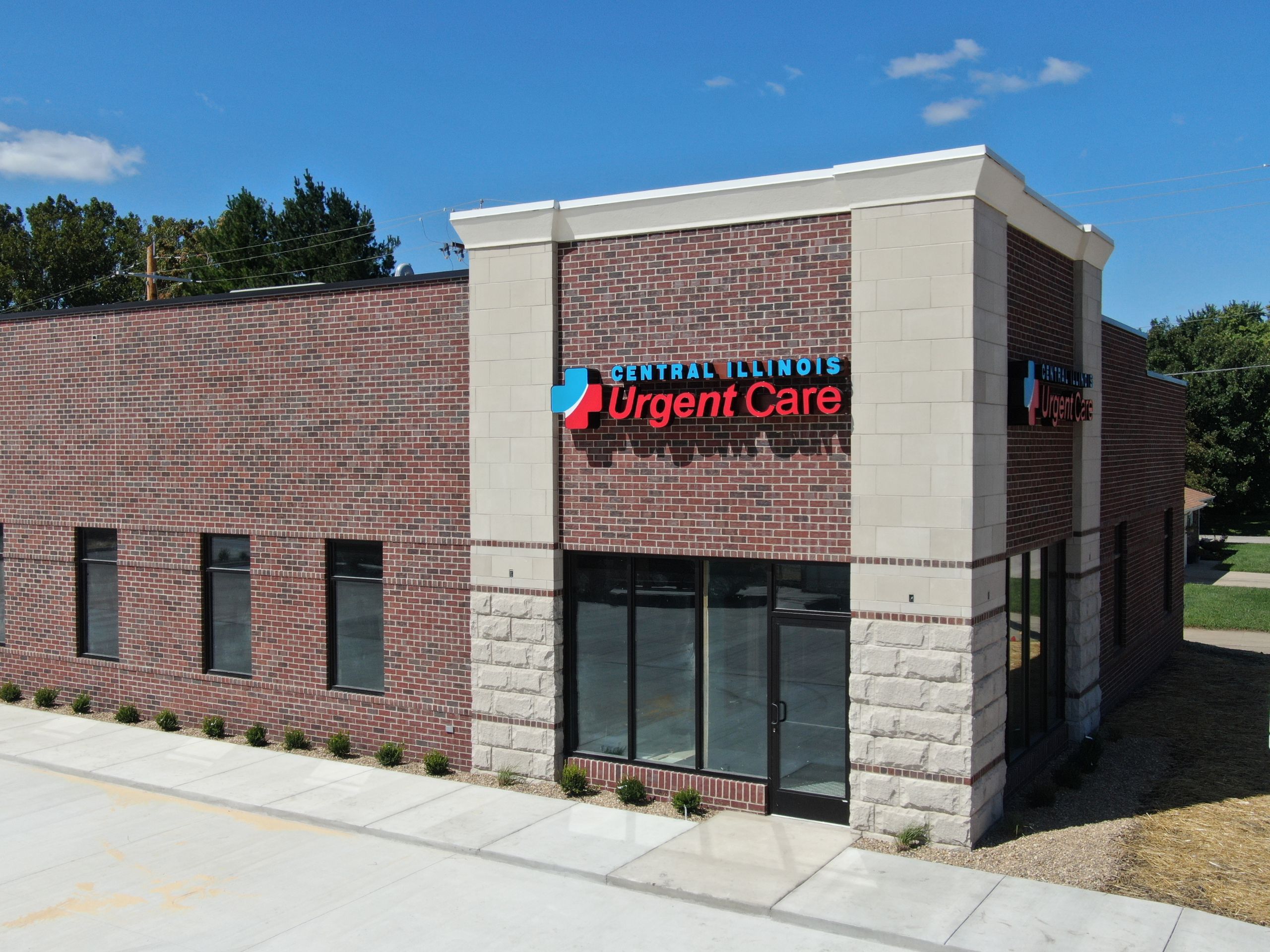
Understanding Urgent Care: When to Seek Immediate Help
Recognizing the Symptoms That Demand Urgent Attention
When it comes to healthcare, knowing when to seek immediate assistance can make a vast difference in outcomes. Urgent care centers bridge the gap between primary care and emergency rooms, catering to specific situations requiring prompt attention but not warranting the full-scale response of an emergency department. Common symptoms that necessitate an urgent care visit include moderate to severe pain, open wounds, fractures without severe complications, as well as illnesses such as high fever, persistent vomiting, or severe dehydration. Each instance can provoke anxiety and confusion; understanding these symptoms is paramount. For instance, if you or a family member is experiencing difficulty breathing or displays signs of a stroke such as sudden numbness or weakness, especially on one side of the body, these warrant immediate attention at an emergency room rather than an urgent care facility. Moreover, urgent care is particularly well-suited for addressing infections be it urinary tract infections (UTIs), ear infections, or skin infections that emerge without advanced warning. These conditions may escalate if not treated quickly, leading to unnecessary complications. Observing unique or alarming symptoms, such as allergic reactions or severe acute abdominal pain, should also steer you towards seeking urgent medical help promptly. Fundamentally, understanding what constitutes “urgent” as opposed to “emergency” can be a game-changer for your health and well-being.
Urgent Care vs. Emergency Room: Making the Right Choice
The contemporary healthcare landscape presents patients with multiple options, but knowing when to utilize urgent care versus an emergency room (ER) is crucial for both optimizing your treatment and minimizing costs. While both settings aim to treat patients swiftly, they differ significantly in their approach, scope, and operational hours. Urgent care facilities are generally ideal for nons-life-threatening conditions that still require timely care. They typically have extended hours and shorter waiting periods compared to ERs, which is especially advantageous during off-peak hours or weekends. The typical advantages of an urgent care center include convenience, cost-effectiveness, and accessibility. For instance, costs are often a fraction of what you would pay at an emergency room; a visit to urgent care can range anywhere from $100 to $200, while an ER visit could easily exceed $1,500. Furthermore, urgent care centers often allow walk-ins without requiring appointments, making them a practical choice for people who need immediate attention without the steep waiting times associated with emergency rooms. However, should you face severe conditions like chest pains, traumatic injuries, or symptoms suggestive of a heart attack or stroke, the ER is unequivocally the right choice. The choice ultimately depends on the nature and severity of the medical issue. It’s advisable to conduct an internal assessment of symptoms and take into consideration your medical history prior to deciding the most appropriate route for your care. The distinction can often save time, money, and, most importantly, secure your health.
Exploring Lincoln’s Top Urgent Care Facilities
A Comprehensive Look at Services Offered in Lincoln’s Clinics
Lincoln boasts a variety of urgent care facilities, catering to diverse medical needs and ensuring that residents receive quality healthcare without delay. Many of these centers provide a comprehensive suite of services, including treatment for minor injuries and illnesses, diagnostic services, and preventive care measures like vaccinations. Routine procedures like suturing wounds, sprains management, and administering IV fluids for dehydration often occur within the walls of these centers. Beyond just treating immediate ailments, several clinics focus on specific health issues that are prevalent in the community, including travel vaccinations, lab tests, and physicals for school or work. Behavioral health assessments are also becoming increasingly offered, recognizing that urgent care extends beyond the physical into the realm of mental health. In Lincoln, facilities like [insert popular and reputable clinic names here] stand out by offering specialized services like occupational medicine and health screenings essential for both individuals and employers aiming to ensure workplace safety and compliance with regulations. Moreover, the best urgent care centers understand the value of technology and often integrate electronic health records (EHR) systems that enhance coordination between primary care and urgent care settings. This allows for streamlined communication, ensuring that both your routine doctor and specialists are aware of the treatments you received, therefore promoting continuity of care.
Patient Experiences: What to Expect from Lincoln’s Urgent Care
Venturing into an urgent care facility for the first time can generate queries and concerns regarding the patient experience. Generally, you can expect a welcoming environment where trained medical professionals aim to make your visit as comfortable and efficient as possible. The process typically begins with registration, wherein you provide identification, insurance information, and a brief medical history that informs doctors of any relevant pre-existing conditions or medications. Once registered, your wait time may be significantly lower than that of an emergency room due to the focused nature of the urgent care model. Many Lincoln urgent care facilities utilize a triage process to prioritize patients based on the severity of their symptoms or needs. Regular health information and guides help ease apprehensive patients during this time, demonstrating a commitment not just to physical health but also to mental well-being. Upon consultation, expect an in-depth engagement where healthcare providers assess your concerns, perform physical examinations, and may order tests such as X-rays or blood work as required. Here, patient education becomes vital, with caregivers taking time to explain potential diagnoses, treatment options, and any follow-up care that may be necessary to ensure the patient’s understanding. This fosters an environment where patients feel empowered and informed about their health decisions. Additionally, many urgent care centers prioritize convenience by offering online check-in capabilities and telehealth services, allowing for virtual consultations when applicable. Combined with an efficient follow-up process post-visit, patients often express satisfaction and confidence in the care delivered at Lincoln’s urgent care facilities.
Insurance and Payment Options at Lincoln Urgent Care Centers
Navigating Your Insurance: What You Need to Know Before You Go
Before stepping foot into an urgent care facility, understanding your insurance coverage proves essential. Many urgent care centers across Lincoln accept a wide array of health insurance plans. However, the specifics can vary significantly from one clinic to another, ranging from in-network hospital affiliations to accepted co-pays and deductibles. To avoid unwelcome surprises, it’s paramount to contact your insurance provider ahead of your visit. They can provide clarity on what urgent care visits entail, including covered services and any potential out-of-pocket costs. Furthermore, familiarizing yourself with the concept of “urgent care vs. primary care” can aid in understanding your coverage nuances. For many insurance plans, urgent care visits may incur different co-pays or deductibles compared to visits to your primary care physician (PCP). After hours or on weekends, utilizing urgent care clinics can still often be covered under your plan, provided your reasons for visitation are legitimate and comply with your provider’s rules surrounding urgent care. In addition, numerous urgent care facilities facilitate quick stat-of-care verifications before commencement of treatment, which ensures you can move forward without worrying about whether your claims will later encounter issues. Some clinics even participate in local health programs or partnerships that create sliding scale payment options based on income, thus empowering community residents to access care without financial burdens.
Understanding Out-of-Pocket Costs: Budgeting for Your Health
Once you grasp the ins and outs of your insurance, getting a grasp on potential out-of-pocket expenses is the next logical step. While urgent care services generally skew towards being more affordable than ER visits, it’s still relevant to budget accordingly. The total costs may vary based on several factors, including the nature of your visit, diagnostic tests performed, and any follow-up care required. A standard urgent care visit in Lincoln might start anywhere from $100 to $250 this can encompass a consultation fee, treatment of minor ailments, and perhaps basic tests such as strep throat or flu swabs. However, should you require additional services like X-rays, lab tests, or specialty consultations during your visit, costs can escalate rapidly. It’s wise to check with the specific urgent care facility regarding their pricing policies upfront or inquire whether they have self-pay rates. Several urgent care providers also offer membership programs or pre-paid options that can lead to savings on multiple visits throughout the year, while others may even run promotions on specific treatments or vaccinations. In any case of unexpected out-of-pocket expenses, transparency is vital. Most urgent care facilities will assist you in establishing payment plans that allow you to spread the cost over a period that suits your financial situation.
Enhancing Your Urgent Care Experience: Tips and Tricks
What to Bring: Essential Items for a Smooth Visit
Preparation can significantly enhance your urgent care experience, ensuring a swift and efficient visit. Upon deciding to visit an urgent care center, consider gathering essential documents and items that will expedite your consultation. First and foremost, always bring your insurance card if you’re insured; this will facilitate the processing of your information at the front desk. Additionally, a photo ID may be necessary in many facilities, as it helps in the identification process and contributes to maintaining accurate health records. Furthermore, a concise list of medications currently being taken including their dosages provides vital context and speeds up the clinical assessment process. If you have allergies to medications or any past medical history that’s relevant to the current issue, compiling that information will allow healthcare staff to make informed decisions in your best interest, reducing the likelihood of complications during treatment. Lastly, do not forget to jot down any questions or concerns you wish to address during your visit, ensuring that all your health-related inquiries receive the attention they necessitate. Equipped with these essential items, your visit will flow more smoothly, allowing healthcare professionals to engage in effective dialogue about your condition as they treat you expediently.
Post-Care Follow-Up: Ensuring Your Health Continues on the Right Track
After your urgent care visit, ongoing communication plays an integral role in your healthcare journey. Most visitors presume their responsibility ends once they leave the clinic; however, follow-up care remains crucial for a positive outlook on recovery. Typically, urgent care centers provide clear instructions concerning follow-ups, including any necessary prescriptions, referrals to specialists, or recommendations for additional tests. In many cases, ensuring medication adherence, whether it’s over-the-counter treatments or prescriptions, significantly contributes to enhancing your recovery trajectory. Be cognizant of potential side effects and interactions that may arise from newly prescribed medications, which often warrant discussions with your pharmacist or primary care provider. Furthermore, experiencing any lingering symptoms necessitates promptly returning to urgent care or consulting with your primary doctor, depending on the implications. For ongoing health management, consider establishing a reliable communication channel with your healthcare providers. Should follow-up appointments be warranted, whether virtual or in-person, ongoing assessments can foster a more proactive approach to managing your health concerns. In this light, post-care should be viewed not only as the conclusion of a single visit but as an integral facet of your overall healthcare strategy. Therefore, while urgent care facilities in Lincoln provide essential immediate health solutions, it’s the engagement that follows through diligent follow-ups, adherence to treatment plans, and clear communication with healthcare professionals that can ultimately elevate your health outcomes, embodying a holistic approach to well-being










